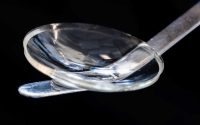Vitamin D deficiency: The four groups that could be at ‘risk’ even during summer – signs
Lorraine: Dr Amir says spine could shrink if deficient in vitamin D
We use your sign-up to provide content in ways you’ve consented to and to improve our understanding of you. This may include adverts from us and 3rd parties based on our understanding. You can unsubscribe at any time. More info
“Vitamin D is required for a whole host of roles in the body, including mood, brain function, immune function, hormone production and bone health,” said nutritionist Jenna Hope. “Some groups of individuals can be at a greater risk of vitamin D deficiency than others.”
Due to the way vitamin D gets synthesised, certain groups might not be able to get enough of the sunshine vitamin during summer.
This is because some people might have “very little” or no sunshine exposure, according to the NHS.
The health service explains that the groups who might be at risk, include those who:
- Are not often outdoors (for example, if they’re frail or housebound)
- Are in an institution like a care home
- Usually wear clothes that cover up most of their skin when outdoors
- Have dark skin (for example those with an African, African-Caribbean or south Asian background may not make enough vitamin D from sunlight).
READ MORE: Diabetes: The golden drink that lowers blood sugar – drink ‘immediately’ after eating

The nutritionist said: “Older individuals who are unable to get outside or those who live inside an institution and may spend most their days indoors where they’re not getting any exposure to the UV rays from the sun.
“Where possible these groups of people should try to get outside for 10-15 minutes per day without SPF as sunscreen can block vitamin D synthesis.
“Additionally, those who wear clothing to cover up most of the skin in the outdoors may also be at a greater risk of vitamin D deficiency as active vitamin D cannot be synthesised through clothing.
“Furthermore, those with darker skin may also be at a greater risk as the higher melanin concentrations can impair ability to convert 7-dehydrocholesterol into active vitamin D.”
It all comes down to the way your body produces vitamin D. Your body can organically produce the nutrient just from spending time in the sunshine with bare skin.
While this is not possible during the autumn and winter months in the UK, the summer should offer enough sun.
However, if you’re unable to properly synthesise the vitamin or go outdoors, you could still be at risk.
That’s why the NHS recommends taking a 10-microgram supplement of vitamin D daily if you belong to one of the four groups.
READ MORE: Vitamin deficiencies: Two shortages known to interfere with blood clotting

Mrs Hope said: “These groups may benefit from taking a vitamin D supplement of 10µg per day throughout the year rather than just the winter months which is recommended for the UK population.”
What are the symptoms of vitamin D deficiency?
The Cleveland Clinic lists the main tell-tale signs linked to low levels of vitamin D:
- Fatigue
- Bone pain
- Muscle weakness, muscle aches, or muscle cramps
- Mood changes
- Depression.
Apart from supplements and sun, there are some foods that contain the sunshine vitamin.

The expert added: “In addition, ensuring the consumption of vitamin D food sources can also help to increase vitamin D status in the body.”
The food sources of the nutrient include:
- Oily fish (salmon, sardines, herring and mackerel)
- Red meat
- Liver
- Egg yolks
- Fortified foods (some fat spreads and breakfast cereals).
However, the health service notes that “it’s difficult” to get enough of vitamin D from food alone.
So, everyone who is at risk of deficiency should primarily rely on supplements.
Source: Read Full Article


